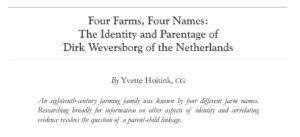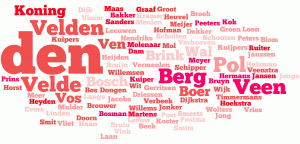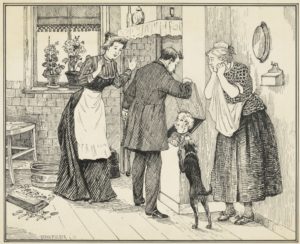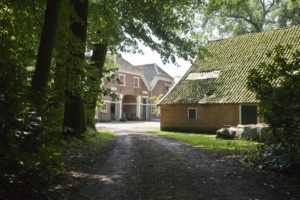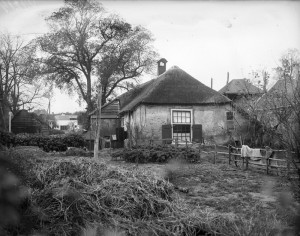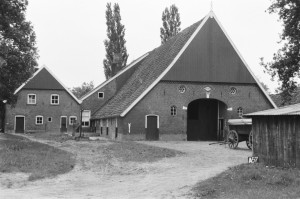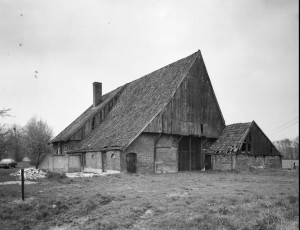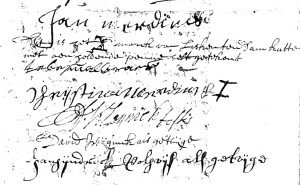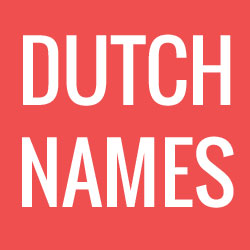My article "Four Farms, Four Names, The Identity and Parentage of Dirk Weversborg of the Netherlands" has just been published in the National Genealogical Society Quarterly. I am so proud to have my article published in this leading journal in our field. This case study is special to me. It is the first complex evidence case study I ever solved, when I was 16, proving the parents of my generation 9 ancestor Dirk Weversborg. He appears in records under three different farm names, and his … [Read more...]
Eight Dutch Naming Patterns to Watch Out For
Understanding how Dutch people named their children or themselves will help you solve your family mysteries. Here are eight Dutch naming patterns to watch out for. Naming children after grandparents Many Dutch children were named after their grandparents, often in a specific order: the first son after the paternal grandfather, second son after the maternal grandfather, first daughter after maternal grandmother, second daughter after paternal grandmother. After the grandparents were named, … [Read more...]
Quick tip – Hiding under another name
If your ancestors were from a small town and you can't find their parents, perhaps they're hiding under another name. There wasn't a great influx of new people in a small town, so don't automatically assume that people came from elsewhere if you can't find them. They could be hiding under a different farm name, or their last name could be a patronymic referring to the first name rather than the last name of the father. Or maybe they were the first in their family to use that particular name … [Read more...]
Case study – Using Estate Inventories
In Winterswijk, Gelderland in 1754, Jan Hendrik Hilbelink was a widower with four young children, who wanted to marry again. Before being allowed to do so, he had to come to an agreement with the guardians of his minor children. He made an estate inventory of all the possessions of him and his late wife, Aaltjen Vriesen. Their children would be entitled to her half. The inventory consists of the following items: 1 piece of farm land cooking tools (pots, baking trough, sifs) 2 … [Read more...]
Quick tip – Who owned the farm?
If your ancestors were farmers, try to find out who owned the farm. After 1832, you can check the Cadastre, before that time you can check real estate tax records or transport deeds in court records. Not many farmers owned their own farm. If they rented the farm from a rich or noble family, the archives of that family may have survived and may have records about your family. If they were serfs, the serf registers of the overlord may provide more information. For an example, read about two … [Read more...]
The Ancestor Conspiracy
Do you ever have a feeling that our ancestors are conspiring to be found? I certainly do! Back in 1993, just two years after I had begun doing genealogy, I used some money I had made baby sitting to buy the transcribed church records of Aalten in Gelderland. (And yes, I was a weird teen.) Soon afterwards, there was a query in Gens Nostra, the monthly magazine of the Nederlandse Genealogische Vereniging (Netherlands Genealogical Society), asking about an Aalten family. The writer was stuck … [Read more...]
Another Long-term Tenant
A few weeks ago, I wrote about two tenancy contracts that showed that the Ten Haken farm in Winterswijk was in the family for three generations of tenants. As a result, reader Gerrit Stemerdink shared the story of his Wieberdink ancestors with me. They were tenants of the Wieberdink farm for more than two centuries. The following is an adaptation of the information he provided. Gerrit's great-grandfather Berend Willem Stemerdink was married to Christina Wieberdink (1861-1930). The … [Read more...]
Two Tenancy Contracts from the 1700s
Most farmers in the Netherlands were tenants, not owners. This can make it hard to find out where they lived, since we can usually only find deeds for the owners, not the tenants. Since so many of us descend from tenant farmers, I thought I'd share two tenancy contracts with you that I found for my ancestors. It is rare to find such a contract, since these deals were often made informally and if put in writing, the landlord would keep a copy and the tenant would be a copy. Usually, no copy … [Read more...]
Case study – Working with farm names
In parts of the provinces of Drenthe, Overijssel and Gelderland, people used to call themselves after the farm they lived on. It wasn't until the introduction of the civil registration in 1811 that their names became fixed. My own name, Hoitink, is an example of such a farm name. Since the name could change every time a person moved, this creates some interesting genealogical puzzles. In this case study, I'm going to give you an example of such a family in my own tree that shows you how to … [Read more...]
Dutch name: Ten Hoeve
Dutch Names is a new series of videos on Dutch Genealogy, where you can learn how to pronounce a Dutch name and learn about the origins of that name. The first episode features the name Ten Hoeve. Do you want me to feature your Dutch name in a future episode? Please leave a comment. Watch the video on Youtube View the slides on Slideboom … [Read more...]
